In a 24-hour news cycle where scoops sell and trending thrives, Slow News is veering away from the viral.
 The Seoul-based online news organization aspires to deliver news “slowly but more deeply.” Concerned by sensationalized stories by many profit-driven South Korean online media outlets, journalists and bloggers formed Slow News to generate a deeper discussion of issues.
The Seoul-based online news organization aspires to deliver news “slowly but more deeply.” Concerned by sensationalized stories by many profit-driven South Korean online media outlets, journalists and bloggers formed Slow News to generate a deeper discussion of issues.
Nakho Kim, one of its founders, says the quick pace of online news has contributed to a decline in journalistic standards. Since 2012, Slow News has covered issues in politics, business and culture that might not otherwise have been given much attention by traditional media.
In late 2015, South Korea, which has more than 2,000 online news outlets, revised its Newspaper Law to curb tabloid-type stories on the Web. It requires that online news outlets have at least five employees by November 2016 rather the three now required. And while it’s not required that outlets be registered, only registered media are given access to things like news conferences.
Slow News has only two full-time employees — an editor-in-chief and a publisher who also serves as designer. It relies on part-time contributors — journalists, media scholars and bloggers who all have day jobs — to provide content.
While Kim agrees that some online media use sensationalized words or images to increase traffic, he said the ordinance could be used to repress small media outlets critical of the government.
Laws already in effect, including the controversial National Security Law of 1948, are considered an affront both to the free press and free speech in South Korea.
New Battleground
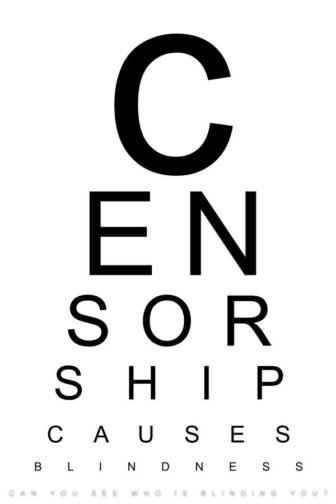 Independent news organizations in Indonesia and the Philippines also are experiencing both direct and indirect challenges in cyberspace, from content blocking to censorship and self-censorship.
Independent news organizations in Indonesia and the Philippines also are experiencing both direct and indirect challenges in cyberspace, from content blocking to censorship and self-censorship.
Edgardo Legaspi, executive director of the Southeast Asian Press Alliance, says threatened governments are “playing catch-up” after recognizing that the Internet can be an effective tool for voices to be heard. Governments, especially repressive regimes, are trying to keep web-based news organizations not previously covered in line, Legaspi said.
The Southeast Asian Press Alliance, formed in 1998, is a Bangkok-based nonprofit that monitors press freedom, ensuring access to information and the safety of journalists in the region. In the last four years, it’s begun looking into freedom of expression online after seeing a spate of Internet crackdowns ranging from denial-of- service to the prosecution of bloggers in Vietnam and Singapore.
“Journalists used to be on the receiving end of these threats,” Legaspi said. “Now, there are more cases, more victims.”
Madeline Earp, Asia research analyst for Freedom House’s Freedom on the Net report, said the internet, as a “democratizing platform,” allows practically anyone to express themselves, bypassing professional media.
Indonesia’s Press Predicament
 Kantor Berita Radio, Indonesia’s only independent national radio service, published on its website, Portal KBR, a story in 2015 about a hotel development in Jakarta. The project met strong opposition from the community because it was getting in the way of water access.
Kantor Berita Radio, Indonesia’s only independent national radio service, published on its website, Portal KBR, a story in 2015 about a hotel development in Jakarta. The project met strong opposition from the community because it was getting in the way of water access.
News manager Citra Prastuti said Portal KBR followed ethical guidelines and sought legal advice on sensitive sections of the story. One source was not named because of anticipated trouble at his workplace; however, his voice was used in audio portions of the report.
After the story aired, the source asked Portal KBR to remove his content because questions were being asked at his job. The source’s voice was removed, but his comments remained in the print version. Prastuti said Portal KBR removed the audio because it wanted to ensure the source’s safety.
Threats aimed at sources — not news organizations — have become more common in the past two years, said Nezar Patria, a member of the Indonesian Press Council. The government and others seem to have found a new way, not to control the media, but to seek redress by going after sources, Patria said.
Like South Korea, Indonesia uses laws to cover Web content. In addition to defamation provisions in its Criminal Code, the government passed the 2011 State Intelligence Law, the 2008 Anti-Pornography Law and the 2008 Electronic Information and Transactions Law to ensure national security, counter pornography and protect customer data, respectively.
Media experts and human rights advocates, however, say the laws contain vague language that leave them open to abuse. The law protecting customer data, for example, can lead to censorship because of unclear references to “forms of disturbance,” “abuse of electronic information,” “public interest,” and “public order.”
The most contentious clause in the law designed to protect customer data proscribes criminal punishment of up to six years in jail and a fine of up to Rp1 billion ($75,921). The Criminal Code penalties, by comparison, are nine months in jail or a fine of up to Rp4,500 (34 cents).
The law has been challenged at least four times, but judicial reviews have led to no changes.
However, Indonesian journalists, while concerned about the laws, don’t see them as a direct threat because the country’s Press Council tries to resolve complaints.
Filing a complaint with the Press Council, if successful, would often result only in the media making a correction or the complainant being given the right to reply, Patria said. Filing a lawsuit against a source not covered by the Press Law may lead to criminal charges or imprisonment.
“This … is more dangerous to the citizens in Indonesia because criminalizing resource persons is a threat to a wider freedom of speech,” Patria said.
Freedom House, a Washington, D.C.-based group that monitors democracy and freedom worldwide, reported that 74 people were sued from 2008-2014. Ninety-two percent of the cases cited online defamation, 5 percent blasphemy and 1 percent online threats.
The number of prosecutions also nearly doubled in 2014, from 21 in 2013 to 41.
![]() Wahyu Dhyatmika, managing editor of Tempo’s Investigative Desk, said sources are more cautious when speaking to reporters.
Wahyu Dhyatmika, managing editor of Tempo’s Investigative Desk, said sources are more cautious when speaking to reporters.
Tempo, founded in 1971 during the Suharto dictatorship, has been a consistent source of independent and investigative reporting in Indonesia.
Still in Transition
Dhyatmika noted that Indonesian media is still largely in a digital transition, with many struggling financially.
“We are still using internet mostly for our basic needs — to verify information, to check people’s background — but not really taking advantage of what the internet can offer,” he said.
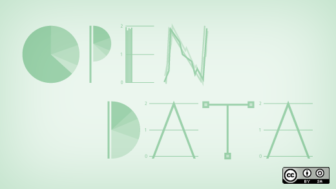 The Indonesian government, as part of the global open data movement, has made more data available online. But Dhyatmika says too few stories are written from these records, including the fact that Indonesia’s not too distant dictatorship has made it difficult for journalists to trust government sourced information.
The Indonesian government, as part of the global open data movement, has made more data available online. But Dhyatmika says too few stories are written from these records, including the fact that Indonesia’s not too distant dictatorship has made it difficult for journalists to trust government sourced information.
Indonesian journalists, he said, need to be trained in how to use data.
Portal KBR’s Prastuti agrees that training is a major issue even though Kantor Berita Radio has moved online.
“We’re trained as radio journalists. We don’t have enough time for online,” she said. But we feel that we really had to move to the online platform. Otherwise, we will be quite left behind.”
South Korea’s “New Gatekeepers”
In contrast, South Korea’s news ecosystem is flourishing, thanks in part to its high Internet and smartphone usage as well as fast connections.
The online migration of the news media in South Korea began in the mid-’90s, before the widespread use of the internet worldwide. The digital shift gained more traction in the late 1990s when South Korea adopted broadband internet. By the turn of the century, about half of the population already had Internet access.
Now at 84 percent, South Korea is one of the most wired countries in the world. By comparison, Indonesia is at 20 percent and the Philippines is at 43 percent.
Most Koreans have gotten their news for the past 15 years from internet portals such as Naver and Kakao. Naver has almost 80 percent of the country’s search market, beating search engine giants Google and Yahoo. Small, independent media are disadvantaged in this thriving online market.
Nakho Kim, who teaches media and journalism at Pennsylvania State University, Harrisburg, said the growing dependence on Naver and Kakao has led to portal sites becoming the “new gatekeepers” in the flow of information.
Portal sites in South Korea provide content from contracted news outlets rather than searching all possible sites. To get a contract with Naver, a media outlet must be certified with the government for at least one year. For Kakao, it’s two years.
Small startups typically end up with two options, Nakho Kim said.
“One thing is to get a little bigger and then try to reach a deal with Naver,” he said. “If you won’t be able to do that you won’t be read on Naver and that will very much limit your visibility.”
The second option is to utilize avenues such as Facebook and Twitter to reach more readers.
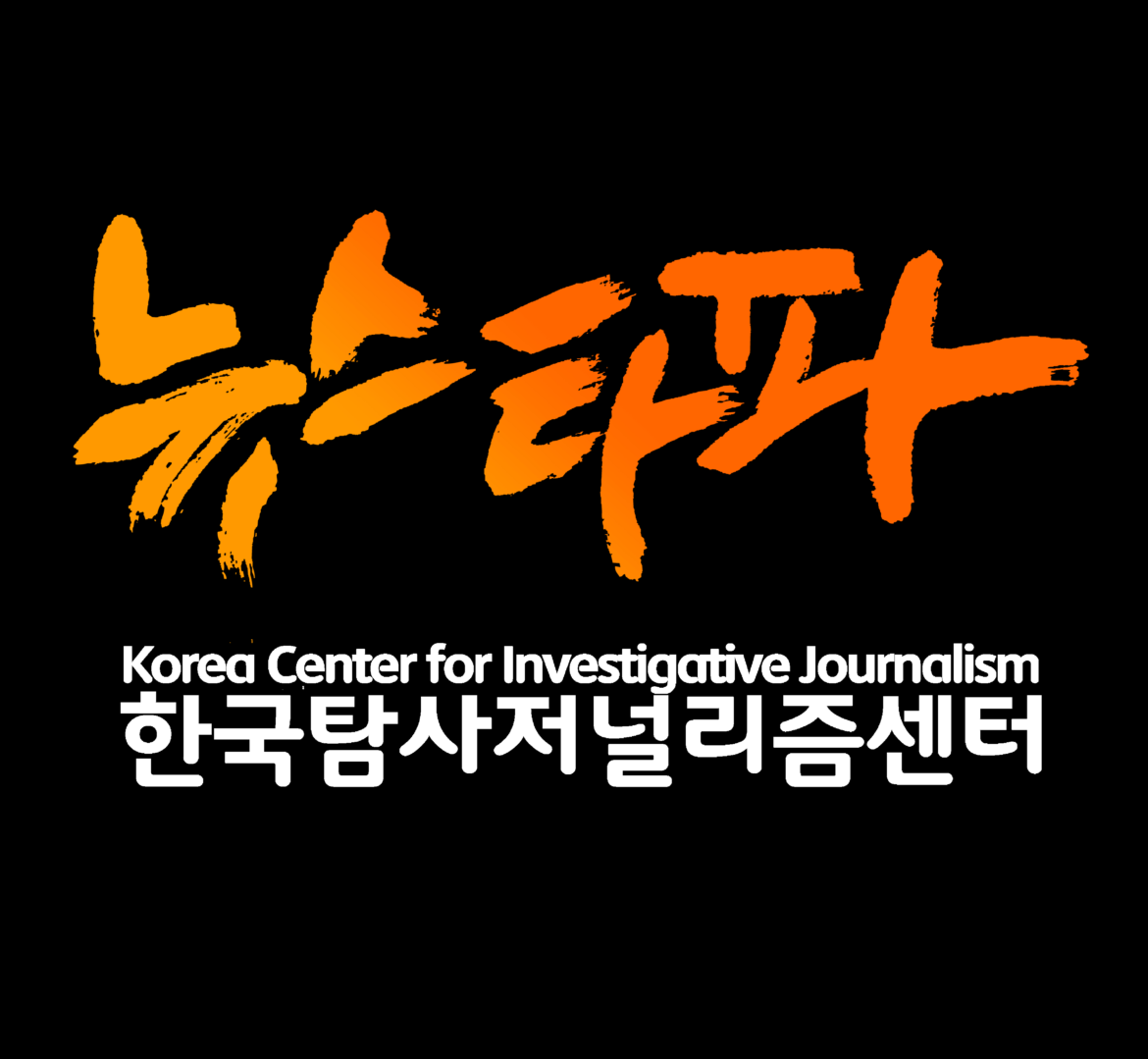 Yong Jin Kim, editor in chief of the Korea Center for Investigative Journalism, South Korea’s first online investigative nonprofit, says most media organizations rely heavily on Naver and other web portals. Only a few small outlets, he said, reach readers directly through membership or the vigorous use of social media.
Yong Jin Kim, editor in chief of the Korea Center for Investigative Journalism, South Korea’s first online investigative nonprofit, says most media organizations rely heavily on Naver and other web portals. Only a few small outlets, he said, reach readers directly through membership or the vigorous use of social media.
Even Newstapa, the online publication of the center draws most of its readers, about 30 percent, from Facebook, followed by direct visits at about 20 percent. Kakao Story, a social media application run by Kakao, and Naver make up about 20 percent of Newstapa’s web traffic, and the rest come from Twitter, Google and other platforms.
Newstapa also gets substantial traffic through direct visits because it regularly sends newsletters to its 35,000 donating members. Still, Kim says they are looking into how to get more direct visits to their website.
Newstapa collaborates with a network of small, local nonprofit media in Daegu and Gwangju, two major cities in South Korea, sharing resources to cover the local and general elections, for example. Kim said these groups are small, with fewer than five staff members, but write good stories and follow ethical standards.
“It is unreasonable that such excellent news organizations don’t qualify for news agency certification because they have a small number of journalists and have a small budget,” he said.
Censorship and Self-Censorship in South Korea
Naver, Kakao and other online service providers in South Korea are legally considered media outlets and are not exempted from media laws and regulations, including defamation provisions. Because of that legal status, they must choose to block content, Nakho Kim. In South Korea, a portal site can block content before any discussion or conflict resolution occurs, leading to self-censorship by news outlets and journalists.
Nakho Kim said users, especially those in portal sites such as Naver self-censor to avoid getting into trouble with the government. Individual news outlets also practice self-censorship when it comes to stories about companies because it can affect advertising.
Yong Jin Kim, editor in chief of the Korea Center for Investigative Journalism, says Newstapa, the center’s online publication, has pursued reporting, offering no sanctuary for anyone, but he cannot say the same for all South Korean news organizations.
“We’ve covered, with no hesitation, corruption and problems with any part of the society, including the president, the majority party, National Intelligence Service, prosecution and more,” he said. “But it seems like self-censorship has become a daily ritual for many other media outlets.”
Kim said some media are simply steering clear of controversial issues.
In March 2016, a veteran investigative reporter left the Korea Broadcasting System and moved to Newstapa after producing a two-part documentary about how the government had been giving medals to inappropriate figures. Station officials were said to have refused to air the program because of concern it could put former president Park Jung-hee, the father of incumbent president Park Geun-hye, in a negative light. The reporter was demoted from the investigative team to the radio news copy-editing desk.
“Seeing incidents like this, most journalists end up thinking that writing non-controversial stories is a convenient way to live,” Kim said. “They end up giving up journalism.”
Issues Facing Filipino Media
The Philippine press is considered one of the freest in Asia. The Internet is remarkably open when compared to its neighbors. Yet Filipino journalists still face many challenges.
Important measures such as the Freedom of Information Act and Whistleblower Protection Act remain in legislative limbo and citizens find it difficult to access public records or reveal illegal activities.
The 2012 passage of the Cybercrime Prevention Act faced tremendous criticism from human rights groups and media freedom advocates. Petitions to nullify certain provisions of the law were filed before the Supreme Court, which found online libel constitutional.
Someone convicted of online libel in the Philippines could be imprisoned for up to 12 years, double the maximum term for libel committed in traditional media.
Independent media in the Philippines also encounter a much more basic problem. While no formal mechanisms to regulate content exist, the digital divide is still wide. Lack of infrastructure, education and training have made it difficult for citizens to access information and communication technologies as much as needed and for journalists to utilize the Internet fully as a reporting tool.
Like many countries in the region and elsewhere, the internet has driven audience behavior and has changed the way Filipinos consume news. For the Philippine Center for Investigative Journalism, a Manila-based investigative nonprofit, two types of audiences have emerged.
Executive Director Malou Mangahas says the center is working to find ways to serve the needs of these two audiences, exploring ways to tell stories by using graphics and multimedia packages as well as more traditional long-form stories.
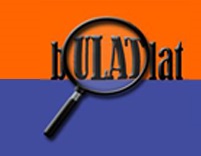 Bulatlat, another independent news organization in the Philippines, also finds itself with the same set of challenges.
Bulatlat, another independent news organization in the Philippines, also finds itself with the same set of challenges.
“It’s a hard balance to strike,” said Editor-in-Chief Benjie Oliveros, adding that Bulatlat is trying to adapt to the much faster pace of the news cycle while ensuring that reporting standards remain high.
Bulatlat, Oliveros said, faces competition from media conglomerates that have gained strong presence on the internet. Many of the outlets are running online news sites as well as their original print publication and radio and TV broadcasts.
“Because of their huge budgets, resources and staff, they bombard the internet with their oversimplified, tabloid-type reporting and interpretation of news and issues, which crowd out in-depth reports,” Oliveros said.
Legaspi notes the tendency for journalists to make mistakes as they try to keep up with the fast pace of the news cycle. However, looking at the situation more broadly, he sees that journalists, especially the more experienced ones, still adhere to professional standards and conduct fact-checking as a routine.
The same cannot be said for non-journalists, who are not bound by such standards, however.
“There has to be a conversation between traditional media and the new media because the thing that unites us is we have all made a private choice to write — to do work as writers or journalists, but we do it in the public domain,” Mangahas said. “The common concern we should address is to not to give government an opportunity, or even the courts, to give a negative landmark jurisprudence on this matter because that would be a legal reference.”
The fact that internet laws don’t distinguish between journalists and online users in the Philippines is especially troubling for Earp of Freedom House. Blogging, she says, is similar to block-time radio reporting, where one could purchase time. Now, anyone can start a blog.
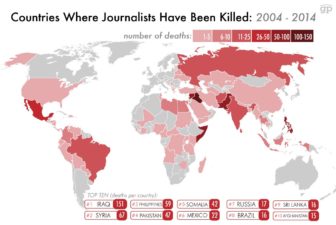 The nonprofit Committee to Protect Journalists in New York reports that 77 journalists have been killed in the Philippines since 1992. But the Center for Media Freedom and Responsibility in the Philippines puts the figure even higher, reporting 131 journalists killed since 1992.
The nonprofit Committee to Protect Journalists in New York reports that 77 journalists have been killed in the Philippines since 1992. But the Center for Media Freedom and Responsibility in the Philippines puts the figure even higher, reporting 131 journalists killed since 1992.
Only Iraq and Syria have been the sites of more journalist deaths.
Regional Trend
Freedom House has documented in its annual Freedom of the Net reports ways in which internet use is limited. The latest study, released in 2015, found Internet freedom in decline overall with more governments blocking content, making arrests and cracking down on user privacy.
The democracies of Indonesia, the Philippines and South Korea fared differently in the 2015 study. Online activity is considered “free” in the Philippines while Indonesia’s and South Korea’s are both “partly free.”
Each country exhibits a different set of motivations, Freedom House’s Earp said, noting that internet laws are passed according to the specific agendas of each government.
Much of the concerns in South Korea stem from either its tense relations with North Korea or social responsibility such as protecting youth, Earp said. In Indonesia, racial and religious elements complicate the speech issue. In the Philippines, the passage of the Cybercrime Prevention Act seemed to reflect different interests turning the law into a patchwork of provisions meant to address various issues, including online libel.
All three do share one trend: The penalties for defamation are harsher online than in traditional media.
Future of Internet Freedom
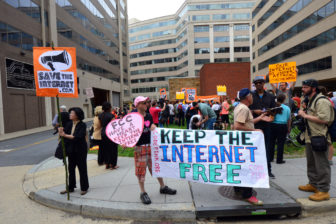 Media experts are careful in making broad assumptions about the direction the three countries and the region will take in the next few years. Legaspi said the difficulty lies in the fact that not only are the countries so different, but also because politics in the region is volatile.
Media experts are careful in making broad assumptions about the direction the three countries and the region will take in the next few years. Legaspi said the difficulty lies in the fact that not only are the countries so different, but also because politics in the region is volatile.
“(A country) can make an unexpected turn toward greater or lesser freedom, depending on who is in power,” he said.
The elections of Indonesian President Joko Widodo and Philippine President Benigno Aquino III were generally seen to foster greater democracy. However, Legaspi does not see major gains in freedom of expression in general, or in freedom on the internet in particular, in those two nations.
Legaspi said the situation could stagnate, with the likelihood of even more restrictions as governments continue to extend regulations from traditional press to online media.
Although the region appears to be moving toward greater restriction online, Earp says the online platform can be used to protect internet freedom. The internet can be used to campaign actively against a problematic law, especially if it has not been passed.
This story was originally published on the Investigative Reporting Workshop website and is reprinted with permission.
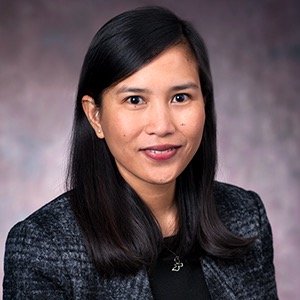 Karol Ilagan is a senior content producer at the Philippine Center for Investigative Journalism (PCIJ), a Manila-based investigative nonprofit. She studied journalism at the University of the Philippines-Diliman and the University of Missouri-Columbia and was a Fulbright and a White House Correspondents’ Association scholar.
Karol Ilagan is a senior content producer at the Philippine Center for Investigative Journalism (PCIJ), a Manila-based investigative nonprofit. She studied journalism at the University of the Philippines-Diliman and the University of Missouri-Columbia and was a Fulbright and a White House Correspondents’ Association scholar.

